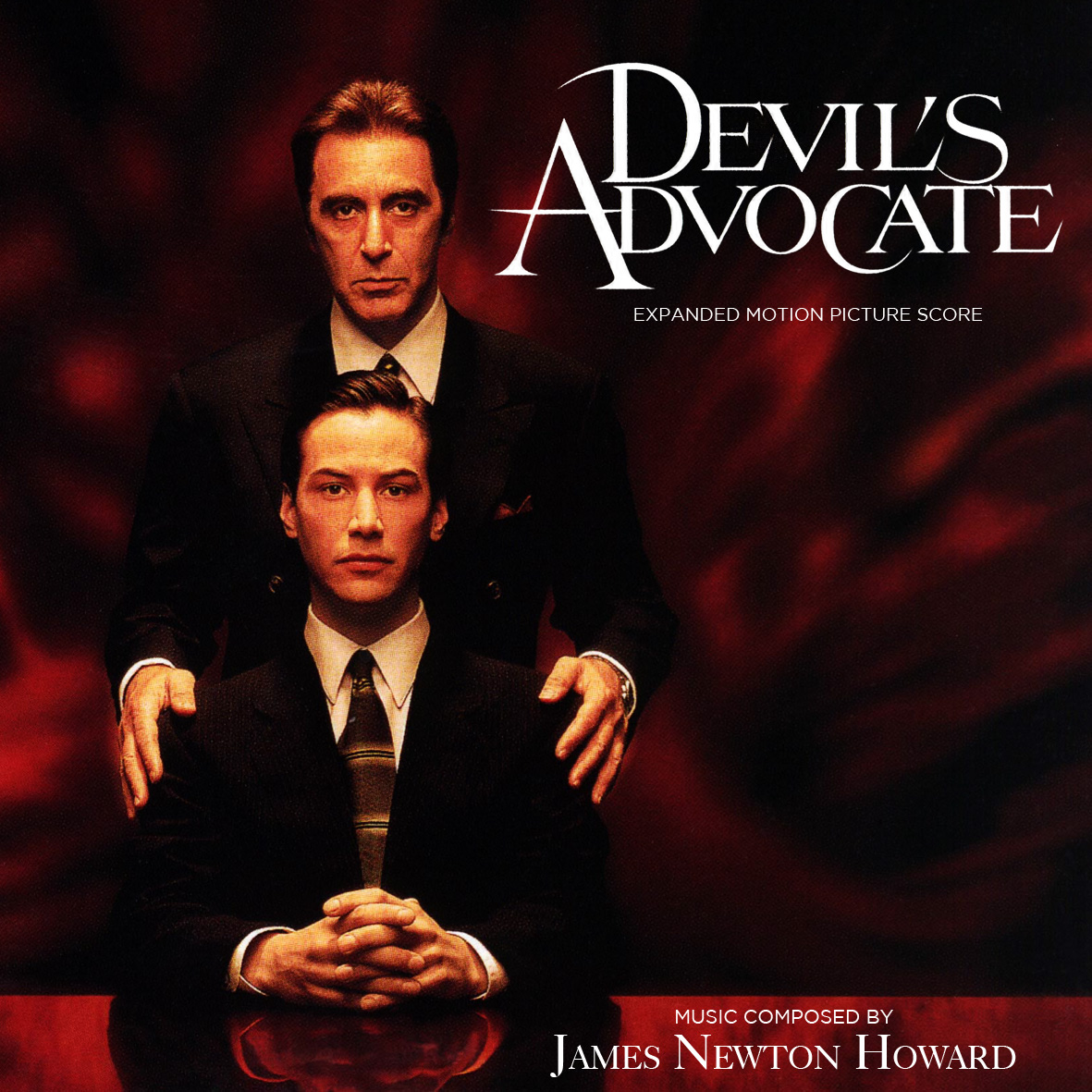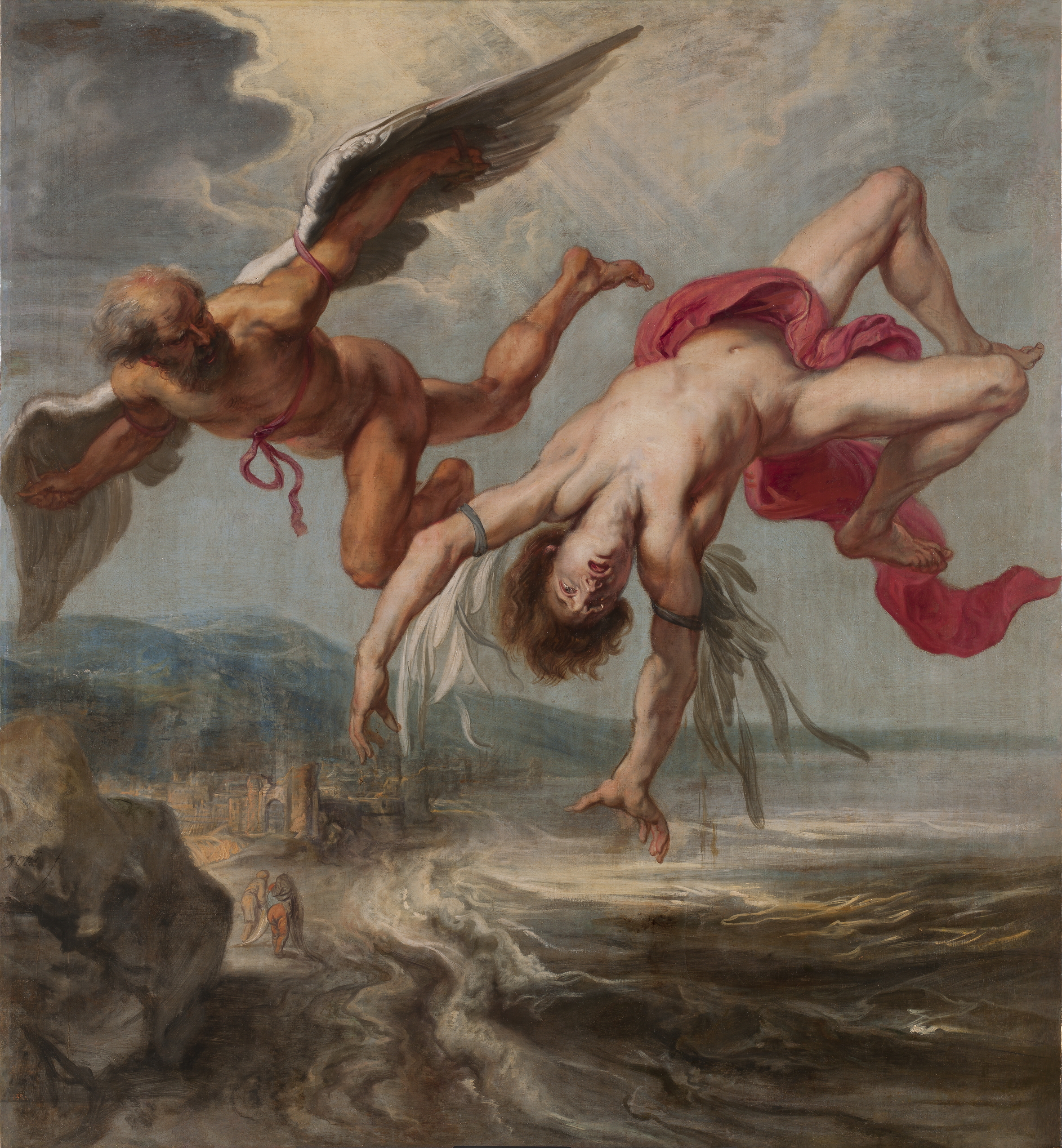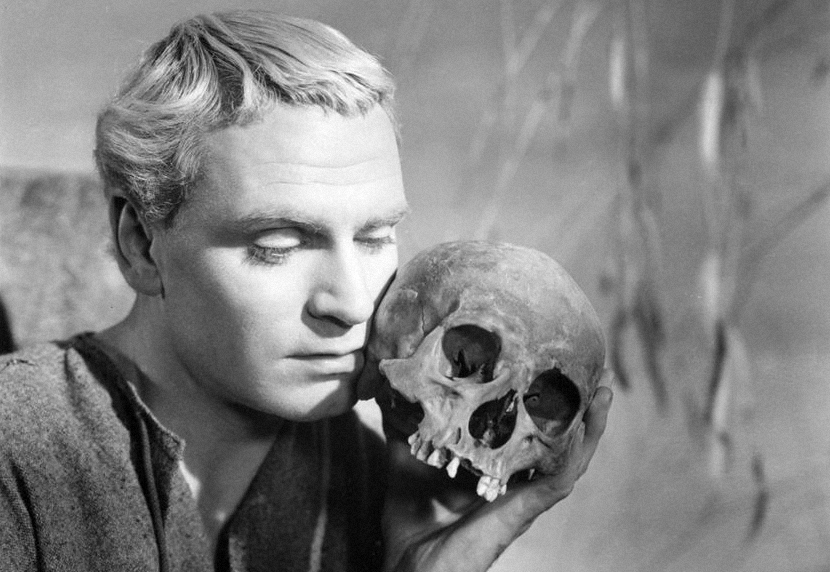The Devil's Advocate (1997 film).

The Devil's Advocate (marketed as Devil's Advocate) is a 1997 American drama thriller film based on Andrew Neiderman's novel of the same name. It is directed by Taylor Hackford, and stars Keanu Reeves, Al Pacino and Charlize Theron.
The film's title is a reference to the commonly used phrase "devil's advocate", and Pacino's character is named after the author of Paradise Lost, John Milton.[3] The movie has some minor allusions to Milton's epic, such as the famous quotation "Better to reign in Hell than serve in Heaven".
The Devil's Advocate- Trailer.
Dante Alighieri.

Durante degli Alighieri (Italian: [duˈrante deʎʎ aliˈɡjɛːri]), simply called Dante (Italian: [ˈdante], UK /ˈdænti/, US /ˈdɑːnteɪ/; c. 1265 – 1321), was a major Italian poet of the Late Middle Ages. His Divine Comedy, originally called Comedìa (modern Italian: Commedia) and later christened Divina by Boccaccio, is widely considered the greatest literary work composed in the Italian language and a masterpiece of world literature.[1]
In the late Middle Ages, the overwhelming majority of poetry was written in Latin, and therefore accessible only to affluent and educated audiences. In De vulgari eloquentia (On Eloquence in the Vernacular), however, Dante defended use of the vernacular in literature. He himself would even write in the Tuscan dialect for works such as The New Life (1295) and the aforementioned Divine Comedy; this choice, although highly unorthodox, set a hugely important precedent that later Italian writers such as Petrarch and Boccaccio would follow. As a result, Dante played an instrumental role in establishing the national language of Italy. Dante's significance also extends past his home country; his depictions of Hell, Purgatory, and Heaven have provided inspiration for a large body of Western art, and are cited as an influence on the works of John Milton, Geoffrey Chaucer and Alfred Tennyson, among many others. In addition, the first use of the interlocking three-line rhyme scheme, or the terza rima, is attributed to him.
Icarus.

In Greek mythology, Icarus (the Latin spelling, conventionally adopted in English; Ancient Greek: Ἴκαρος, Íkaros, Etruscan: Vikare[1]) is the son of the master craftsman Daedalus, the creator of the Labyrinth. Often depicted in art, Icarus and his father attempt to escape from Crete by means of wings that his father constructed from feathers and wax. Icarus' father warns him first of complacency and then of hubris, asking that he fly neither too low nor too high, so the sea's dampness would not clog his wings or the sun's heat melt them. Icarus ignored his father's instructions not to fly too close to the sun, when the wax in his wings melted and he fell into the sea. This tragic theme of failure at the hands of hubris contains similarities to that of Phaëthon.
Die Another Day.

Die Another Day (2002) is the twentieth spy film in the James Bond series, and the fourth and final film to star Pierce Brosnan as the fictional MI6 agent James Bond. The film follows Bond as he leads a mission to North Korea, during which he is betrayed and, after seemingly killing a rogue North Korean colonel, is captured and imprisoned. Fourteen months later, Bond is released as part of a prisoner exchange. Surmising that someone within the British government betrayed him, he attempts to earn redemption by tracking down his betrayer and killing a North Korean agent he believes was involved in his torture.
Die Another Day, produced by Michael G. Wilson and Barbara Broccoli, and directed by Lee Tamahori, marked the James Bond franchise's 40th anniversary. The series began in 1962 with Sean Connery starring as Bond in Dr. No. Die Another Day includes references to each of the preceding films.[1]

In Greek mythology, Daedalus (/ˈdɛdələs ˈdiːdələs/; Ancient Greek: Δαίδαλος Daidalos, perhaps related to δαιδάλλω "to work artfully";[1] Latin: Daedalus; Etruscan: Taitale) was a skillful craftsman and artist.[2][3] He is the father of Icarus, the uncle of Perdix and possibly also the father of Iapyx, although this is unclear.
I dream of Jeanie with the light brown hair.

"Jeanie with the Light Brown Hair" is a parlor song by Stephen Foster (1826–1864). It was published by Firth, Pond & Co. of New York in 1854. Foster wrote the song with his estranged wife Jane McDowell in mind. The lyrics allude to a permanent separation.[1]
"Jeanie" was a notorious beneficiary of the ASCAP boycott of 1941. During this period, most modern music could not be played by the major radio broadcasters due to a dispute over licensing fees. The broadcasters used public-domain songs during this period, and according to a 1941 article in Time magazine, "So often had BMI's Jeannie [sic] With the Light Brown Hair been played that she was widely reported to have turned grey.
I dream of Jeanie with the light brown hair.
The Rock (Building).

Generation X.

Generation X, or Gen X, is the demographic cohort following the Baby boomers. There are no precise dates for when this cohort starts or ends; demographers and researchers typically use birth years ranging from approximately 1961 to 1981, this including people who are between approximately 36 and 56 years old in 2017. Generation X is a relatively smaller demographic cohort “sandwiched” between two larger demographic cohorts, the Baby boomers and the Millennials.
Sadist.

Sadism involves gaining pleasure from seeing others undergo discomfort or pain. The opponent-process theory explains the way in which individuals not only display, but also take enjoyment in committing sadistic acts.[2][clarification needed] Individuals possessing sadistic personalities tend to display recurrent aggression and cruel behavior.[3][4] Sadism can also include the use of emotional cruelty, purposefully manipulating others through the use of fear, and a preoccupation with violence.[5]
Theodore Millon claimed there were four subtypes of sadism, which he termed Enforcing sadism, Explosive sadism, Spineless sadism, and Tyrannical sadism.
The Roll Call.

Calling the Roll After An Engagement, Crimea, better known as The Roll Call, is an 1874 oil-on-canvas painting by Elizabeth Thompson, Lady Butler. It became one of the most celebrated British paintings of the 19th century, but later fell out of critical favour.
The painting depicts a roll call of soldiers from the Grenadier Guards during the Crimean War. It was taken to depict an occasion following the Battle of Inkerman in 1854, but was intended to show a more generic scene from the war. An irregular line of private soldiers stand in the snow wearing their greatcoats and bearskins, many clearly exhausted or wounded. One of the privates has slumped forward onto the icy ground. An officer on horseback watches while a sergeant marks his muster roll.
Hamlet.

The Tragedy of Hamlet, Prince of Denmark, often shortened to Hamlet (/ˈhæmlᵻt/), is a tragedy written by William Shakespeare at an uncertain date between 1599 and 1602. Set in the Kingdom of Denmark, the play dramatises the revenge Prince Hamlet is called to wreak upon his uncle, Claudius, by the ghost of Hamlet's father, King Hamlet. Claudius had murdered his own brother and seized the throne, also marrying his deceased brother's widow. Hamlet is Shakespeare's longest play, and is ranked among the most powerful and influential tragedies in English literature, with a story capable of "seemingly endless retelling and adaptation by others".[1] The play likely was one of Shakespeare's most popular works during his lifetime,[2] and still ranks among his most performed, topping the performance list of the Royal Shakespeare Company and its predecessors in Stratford-upon-Avon since 1879.[3] It has inspired many other writers – from Johann Wolfgang von Goethe and Charles Dickens to James Joyce and Iris Murdoch – and has been described as "the world's most filmed story after Cinderella".[4] The story of Shakespeare's Hamlet was derived from the legend of Amleth, preserved by 13th-century chronicler Saxo Grammaticus in his Gesta Danorum, as subsequently retold by 16th-century scholar François de Belleforest. Shakespeare may also have drawn on an earlier (hypothetical) Elizabethan play known today as the Ur-Hamlet, though some scholars believe he himself wrote the Ur-Hamlet, later revising it to create the version of Hamlet we now have. He almost certainly wrote his version of the title role for his fellow actor, Richard Burbage, the leading tragedian of Shakespeare's time. In the 400 years since its inception, the role has been performed by numerous highly acclaimed actors in each successive century.
Vocabulary.
1. Cessation.

Pronunciation: sɛˈseɪʃən
Definition: noun
Example Sentences: That cessation of awareness proved a bridge between her old life and her new life.
2. Caesarean.

Definition: adjective
1. of or relating to any of the Caesars, esp Julius Caesar
Example Sentences: If she was in Cairns she could have a Caesarean , but that's out of the question here.
3.Framework.

Pronunciation: ˈfreɪmˌwɜːk
Definition: noun
1. a structural plan or basis of a project
2. a structure or frame supporting or containing something
Example Sentences: He seemed more relaxed now, back in the familiar framework of his job, perhaps.
4. Fragile.

Pronunciation: frædʒaɪl
Definition: adjective
1. able to be broken easily
2. in a weakened physical state
Example Sentences: Diana didn't realize that her son was a fragile child, Brandon decided.
5. Frailty.

Pronunciation: ˈfreɪltɪ
Definition: noun plural -ties
1. physical or moral weakness
2. (often plural) a fault symptomatic of moral weakness
Example Sentences: Her frailty, her beauty, touches something in me, makes me angry.
6. Abuse.









Pronunciation: ˈfreɪmˌwɜːk
Definition: noun
1. a structural plan or basis of a project
2. a structure or frame supporting or containing something
Example Sentences: He seemed more relaxed now, back in the familiar framework of his job, perhaps.
4. Fragile.

Pronunciation: frædʒaɪl
Definition: adjective
1. able to be broken easily
2. in a weakened physical state
Example Sentences: Diana didn't realize that her son was a fragile child, Brandon decided.
5. Frailty.

Pronunciation: ˈfreɪltɪ
Definition: noun plural -ties
1. physical or moral weakness
2. (often plural) a fault symptomatic of moral weakness
Example Sentences: Her frailty, her beauty, touches something in me, makes me angry.
6. Abuse.

Definition: verb
1. to use incorrectly or improperly; misuse
2. to maltreat, esp physically or sexually
7. Candidate.

Pronunciation:
Definition:
1. a person seeking or nominated for election to a position of authority or honour or selection for a job, promotion, etc
8. Opponents.

Pronunciation:
Definition: noun
2. anatomy an opponent muscle
Example
Sentences:
9. Proponent.

Pronunciation:
Definition:
10. Advocate.

Pronunciation:
Definition:
2.a person who intercedes on behalf of another
11. Gran Paradiso.

Definition: noun
a mountain in NW Italy, in NW Piedmont: the highest peak of the Graian Alps. Height: 4061 m (13 323 ft)
12. Parachute.

Pronunciation:
Definition:
1. a device used to retard the fall of a man or package from an aircraft, consisting of a large fabric canopy connected to a harness
Example
Sentences:
13. Malign.

Pronunciation: məˈlaɪn
Definition:
沒有留言:
張貼留言